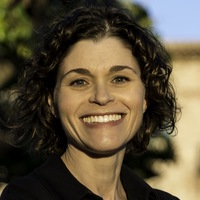By Michelle Finkel, MD
The following piece was written by Dr. Michelle Finkel. Michelle has been featured in our Admissions Expert series and is a former Harvard Medical School faculty member. She is the founder of Insider Medical Admissions.
Most people don’t equate being a pre-med with relaxation. Outsiders imagine your existence as a combination of serious studying, late nights in the lab, and an extensive cornucopia of community service. Let’s be honest – those impressions are mostly right. Because of that, today I’ve decided to escape from the world of medical school application advice and instead, shine a bright light on some recommended pre-med, non-science reading.
I have several books to recommend to pre-meds, from inspirational "toughest job you'll ever love" themes to resilient "don't let them crush your soul" narratives. They range in style and content. Here we go:
The Spirit Catches You and You Fall Down
This wonderful book by Anne Fadiman was published in 1997 and promptly won the National Book Critics Circle Award for Nonfiction, among other accolades.
The book chronicles the U.S. medical experience of a Laos Hmong patient and her family, showcasing the twisted miscommunications between that patient’s clan on the one hand, and her California doctors on the other. The patient’s family and the physicians suffer from so much misunderstanding that the patient’s condition worsens steadily. This is an excellent story and a strong reminder to all medical caregivers as to how – although everyone may be aiming for the patient's best – cultural differences can spoil the doctor-patient relationship. I would describe this as a wonderful exploration of medical anthropology.
Cutting for Stone
This masterpiece by Dr. Abraham Verghese, Professor for the Theory and Practice of Medicine at Stanford University, follows twin brothers born to a nun and a surgeon at a mission hospital in Addis Ababa. The fictional story is told by one of the twins, who are born in Ethiopia under bizarre and terrifying circumstances and who suffer through the country’s political upheaval. The book has sufficient medical references that would renew a pre-med’s interest in medicine, while the prose is accessible enough to recommend to a layperson’s book club.
To me, the author, Dr. Verghese, is a true physician role model. He is able to practice and teach medicine at Stanford while writing a New York Times best-seller that showcases physicians who are empathic, but flawed (i.e., human), healers.
This is a Soul: The Mission of Rick Hodes
This nonfiction book chronicles the work of Dr. Rick Hodes, an American doctor who has lived in Ethiopia for over three decades assisting children with debilitating – oftentimes lethal – spinal problems (frequently tuberculosis-related). Dr. Hodes himself has adopted several sick Ethiopian children. After graduating from Rochester Medical School and doing his internal medicine residency at Johns Hopkins, Hodes left a comfortable life in the States to be a relief worker in the 1980s during the Ethiopian famine. He received a Fulbright and later returned to work with a humanitarian group. He now lives in Ethiopia providing medical care to those in need.
Reading about Dr. Hodes will show you what terrible problems can be relieved with a medical degree and tremendous, self-sacrificing commitment.
A Leg to Stand On
This book, about the author’s own illness experience, is written by the famous neurologist, Oliver Sacks. Many of us know Sacks' popular works (The Man Who Mistook His Wife for a Hat, Awakenings), but this is a lesser-known book that has a lot to offer. In it, Sacks is the patient, and he describes being a physician in the uncomfortable sick role, exploring this vulnerable position. He explores his slow recovery from a mountain climbing accident, highlighting his temporary loss of self. It’s worth a read for the medical audience – to remind us of our vulnerability and to instill empathy.
The House of God
Frankly, I could not get through this book. But my husband, David Presser, who is also a physician, thinks that – despite its shortcomings – it’s worth a read. He wrote the below: Writing under a pseudonym, a former intern at Beth Israel Medical Center (a Harvard-affiliated hospital) turns a cynical, often-withering eye on the absurd experiences encountered by a group of high-achieving interns in their quest to become physicians and the perverse circumstances that conspire to rob them of their humanity. The narrative is clearly dated: It’s written from a 1970s perspective where you can virtually smell the aftershave and envision the sideburns. For the brave reader willing to overlook the misogyny and ego, there are truths that still resonate and some references that some mentors may refer to as cultural touchstones when you hit the wards.
…Of course, there are thousands more books that are valuable for the pre-med audience, but this is a reasonable start. Here’s hoping we can all enjoy a little down time with a good book.
The views expressed in this article do not necessarily represent the views of Varsity Tutors.

